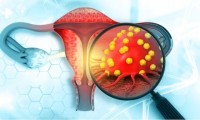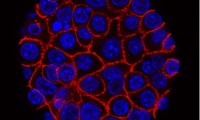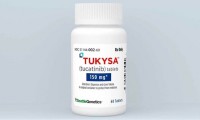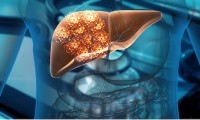-
BioNTech, DualityBio Move ADC into Phase III for HER2-Low Breast Cancer
- Source: drugdu
- 105
- September 5, 2023
-
New screening model shown to predict ten year breast cancer mortality risk
- Source: drugdu
- 103
- September 5, 2023
-
Merck receives EC approval for Keytruda combination in gastric cancer
- Source: drugdu
- 103
- September 1, 2023
-
Novocure Fails Phase III Ovarian Cancer Trial for Tumor Treating Fields Therapy
- Source: drugdu
- 272
- August 31, 2023
-
New MD Anderson Research Uncovers Drug Combo That Could Eliminate Pancreatic Cancer Tumors
- Source: drugdu
- 119
- August 29, 2023
-
Merck, Eisai Drop Phase III Keytruda-Lenvima Trial for Head and Neck Cancer
- Source: drugdu
- 105
- August 29, 2023
-
Microbiome company Enterome plans $108m raise to fund Phase II cancer trials
- Source: drugdu
- 116
- August 28, 2023
-
The past, present, and future of cancer drug development
- Source: drugdu
- 105
- August 28, 2023
-
With trial win, Seagen’s breast cancer drug Tukysa boosts Roche’s Kadcyla—and Pfizer’s $43B buyout
- Source: drugdu
- 146
- August 19, 2023
-
Delcath Gets FDA Approval for Cancer Drug-Device Combo 10 Years After Rejection
- Source: drugdu
- 108
- August 18, 2023
your submission has already been received.
OK
Subscribe
Please enter a valid Email address!
Submit
The most relevant industry news & insight will be sent to you every two weeks.













